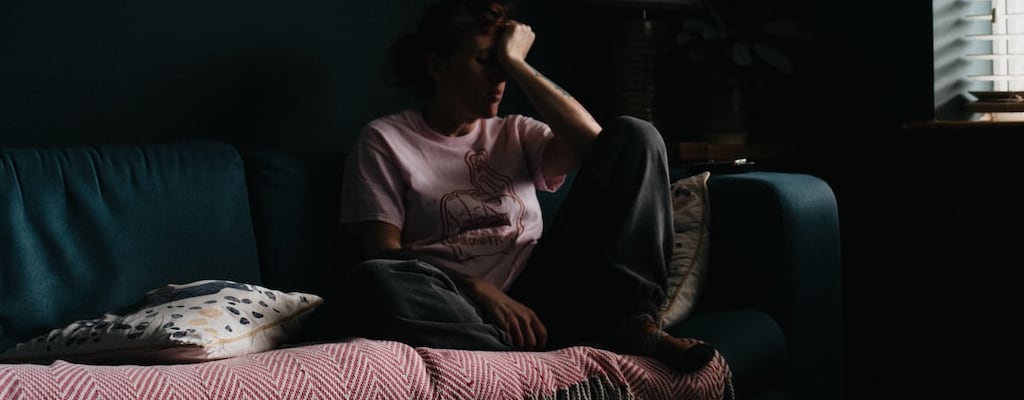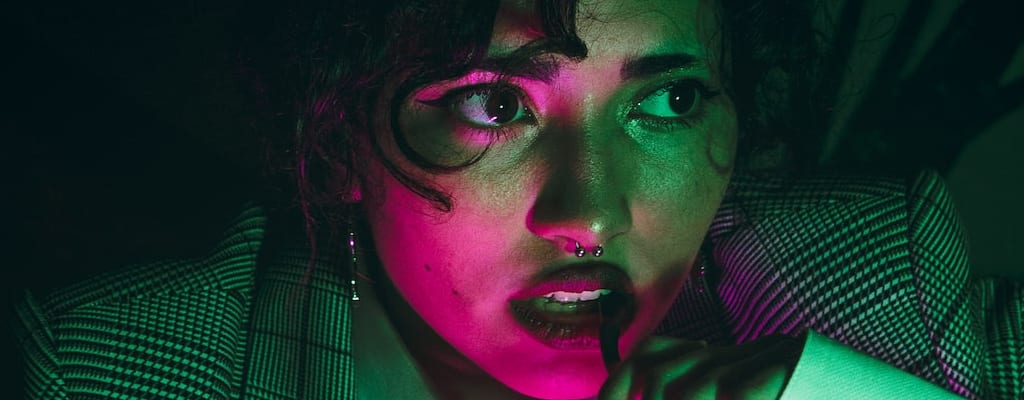dry one’s eyes: Idiom Meaning and Origin
What does ‘dry one's eyes’ mean?
The idiom "dry one's eyes" means to stop crying or to cease being emotional about a situation.

Idiom Explorer
The idiom "lay eyes on" means to see or look at something. It implies that the person looking at something has a strong desire or interest in it.
The idiom "keep one's cool" means to remain calm and composed in a difficult or stressful situation.
The idiom "dry up and blow away" means to disappear or become forgotten, often due to lack of attention or relevance. It conveys the idea of something becoming insignificant or irrelevant over time.
The idiom "dry out" means to stop drinking alcohol or to recover from alcoholism or drug addiction. It can also refer to the process of removing moisture from something or to take a break from a situation or activity.
The idiom "dry eye" refers to showing no emotion or empathy in a situation that would typically elicit a reaction. It implies a lack of compassion or sympathy.
The idiom "dry behind the ears" means someone is still young or inexperienced.
The idiom "cry the blues" means to express one's sadness or dissatisfaction, often through emotional or dramatic means.
The idiom "cry oneself to sleep" means to cry so much that one falls asleep while crying. It is usually used to imply extreme sadness or emotional pain.
The idiom "close one's mind" means to refuse to consider new ideas or opinions, or to be unwilling to change one's beliefs or opinions.
Unshed tears: Tracing the origin
The idiom "dry one's eyes" is commonly used in English to convey the act of stopping oneself from crying or becoming emotional. It is typically employed to encourage someone to stop crying or to express sympathy for someone who is crying. The phrase is idiomatic in nature, meaning that its meaning is not necessarily derived from the literal interpretation of its individual words.
One related idiom is "dry eye," which refers to a medical condition characterized by a lack of tears or insufficient tears to lubricate the eyes. While this idiom is not directly linked to the expression "dry one's eyes," it shares the notion of drying or lack of moisture in the eyes. However, it is essential to distinguish between the idiomatic use of "dry one's eyes" and the medical condition of "dry eye."
There are several theories regarding the origin of the idiom "dry one's eyes." One possible explanation suggests that the phrase arose from the physical act of drying tears with a handkerchief or cloth. This interpretation aligns with the figurative meaning of the idiom, indicating an effort to suppress or cease crying.
Another related idiom is "cry one's eyes out," which means to cry excessively or for an extended period. While this phrase emphasizes the act of crying rather than stopping tears, it shares the theme of eyes and tears. However, "dry one's eyes" implies a change or cessation of crying, whereas "cry one's eyes out" emphasizes the act of crying itself, with no explicit notion of stopping.
A similar idiom is "close one's eyes," which can have various meanings depending on the context. In relation to emotions, "close one's eyes" may suggest willfully ignoring or avoiding emotional distress. While it diverges slightly from the theme of drying tears, both idioms possess a metaphorical essence related to emotional well-being.
One particularly expressive idiom is "bawl one's eyes out," which means to sob uncontrollably or cry loudly. Similar to "cry one's eyes out," this phrase solely focuses on the act of crying and does not connote the idea of stopping tears. It intensifies the image of crying, emphasizing its intensity and emotional magnitude.
Lastly, the related idiom "dry out" means to remove or eliminate moisture or dampness. Although not directly linked to the expression "dry one's eyes," it shares the concept of removing moisture. "Dry out" is often used in contexts unrelated to emotions, such as drying wet objects or eliminating dampness in a space. In contrast, "dry one's eyes" pertains specifically to emotional well-being and the cessation of crying.
The phrase "dry one's eyes" has a long history in the English language, dating back centuries. It has been used in various written forms throughout literature, poetry, and song lyrics. This widespread usage indicates its familiarity and cultural significance.
In contemporary usage, the idiom "dry one's eyes" is often employed in an empathetic or comforting manner. It is commonly used to console someone who is experiencing emotional distress, encouraging them to overcome their sadness or tears. The phrase may be used in both formal and informal settings, reflecting its versatility and broad acceptance.
Furthermore, the idiom "dry one's eyes" can be seen as an expression of resilience and emotional strength. It implies the ability to overcome difficulties or hardships and move forward despite emotional turmoil. By urging someone to dry their eyes, the idiom offers support and encouragement to face challenges head-on.
It is worth noting that idioms, such as "dry one's eyes," can vary in meaning across cultures and contexts. While the idiom may evoke a similar sentiment in other English-speaking countries, it is essential to consider its usage within a particular cultural framework. Variations and nuances may exist, shaping how the idiom is understood and interpreted.
The idiom "dry one's eyes" holds a significant place in the English language, reflecting our collective understanding of emotional resilience and the capacity to overcome hardship. Its usage extends beyond its literal interpretation, conveying a range of emotions and offering solace to those in need. As language continues to evolve, the idiom serves as a reminder of the enduring and evolving nature of human expression.
Example usage
Examples of how the idiom "dry one's eyes" can be used in a sentence:
- She couldn't help but cry when she heard the news, but she eventually dried her eyes and faced the situation with strength.
- After a long and emotional conversation, he wiped his tears away and dried his eyes before leaving the room.
- Despite the heartbreaking loss, she managed to dry her eyes and put on a brave face for her friends.
More "Emotion" idioms



